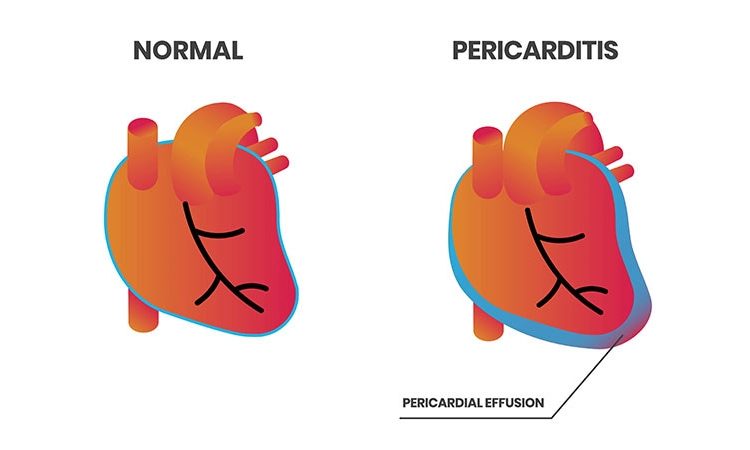TOPLINE:
Treatment with goflikicept, an anti-cytokine biologic, allows patients to discontinue other therapies for idiopathic recurrent pericarditis (IRP) and reduces the risk for recurrence compared with placebo.
METHODOLOGY:
Interleukin-1 (IL-1) cytokines are involved in the pathophysiology of idiopathic recurrent pericarditis (IRP), a rare autoinflammatory disease of the pericardium.
Guidelines recommend nonsteroidal anti-inflammatory drugs (NSAIDs), colchicine, and corticosteroids as first-line therapies, but anti-cytokine biologics such as goflikicept represent new generation anti-inflammatory therapies.
The study, which included patients with IRP with or without recurrence, had an open-label run-in period, 24-week randomized withdrawal (RW) period where responders received goflikicept every 2 weeks or placebo, and an 8-week safety follow-up.
The primary endpoint was time to first pericarditis recurrence, defined as meeting two of these criteria: significant chest pain, elevation in C-reactive protein (CRP), or new or worsening pericardial effusion.
TAKEAWAY:
Nine of 10 patients randomized to placebo had a pericarditis recurrence compared with no recurrences among 10 patients randomized to goflikicept, despite discontinuation of NSAIDs, colchicine, or glucocorticoids during run-in.
There was rapid reduction of CRP levels and reduced chest pain and pericardial effusion compared with baseline during run-in.
Biomarkers relevant to pathogenesis of IRP – IL-6, IL-1 receptor antagonist (IL-1RA) and S100A8/A9 (calprotectin) – were reduced with treatment while the concentration of tumor necrosis factor-alpha didn’t change, which supports IRP being an IL-1-driven disease.
The therapy was well tolerated, and adverse events were predictable and not different from those of other IL-1 inhibitors.
IN PRACTICE:
The findings confirm the central role of IL-1 and expand the armamentarium of drugs that can effectively treat IRP, the authors conclude. An accompanying editorial said the promising results support IL-1 blockers as a preferred therapy for patients refractory to other therapies, and provide insights into directions for future investigations.
SOURCE:
The study was carried out by Valentina Myachikova, MD, Research Laboratory of Autoimmune and Autoinflammatory Diseases, St. Petersburg, Russia, and colleagues. It was published online June 26 in the Journal of the American College of Cardiology.
LIMITATIONS:
The study sample was small and its duration relatively short (36 weeks for most patients). The study lacked an independent review committee and regular cardiac magnetic resonance assessment.
DISCLOSURES:
The study was funded by R-Pharm International. Myachikova has received speaker fees from Novartis and Sobi. For other individual author conflicts of interest, see the original article.
Source: Read Full Article
